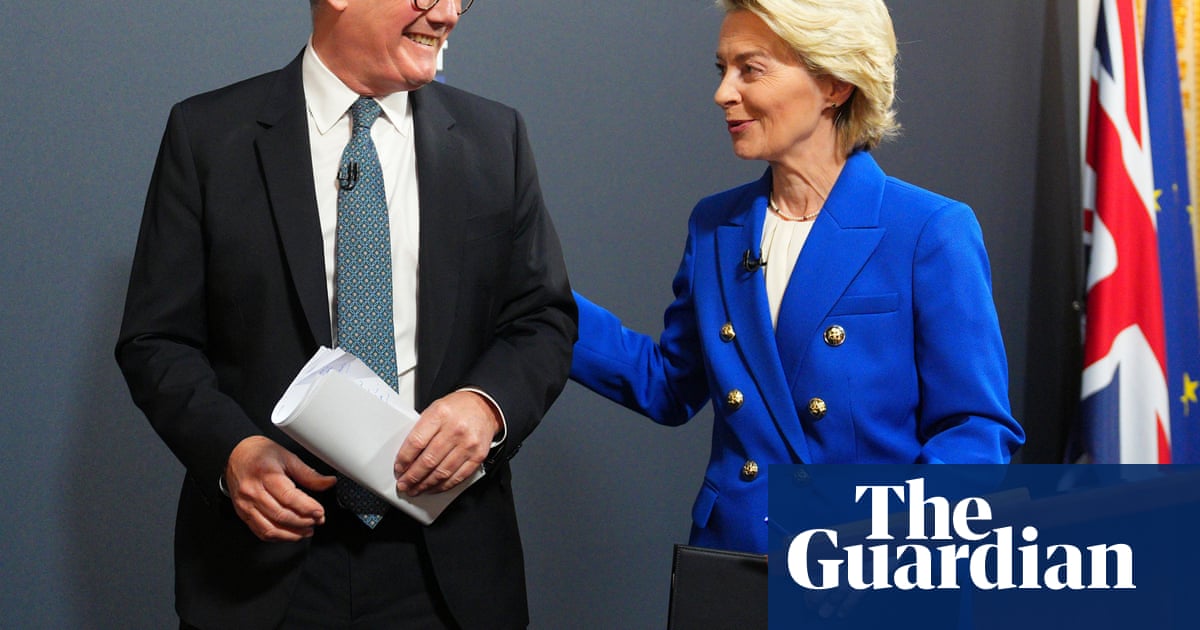A recent Apple update saw people waking up to their emails summarised for efficiency, thus creating light uproar, amusement and a series of small domestic mysteries to be untangled on the bus. A man in America shared a message from his mum, who’d told him, “That hike almost killed me.” Unfortunately, he’d read the summary first: “Attempted suicide, but recovered and hiked in Redlands.” Another Apple user opened his phone to find himself, in summary, dumped: “Not feeling romantic spark; apologises for ending things.”
I find myself today, against efficiency. I find myself against efficiency at a time when inefficiency is framed as, if not yet criminal then certainly immoral. Since Elon Musk attached himself to the Trump campaign, his Department of Government Efficiency (Doge) has been gutting the federal government in the same way he did with Twitter, slashing contracts, getting rid of more than 100,000 federal workers and closing down agencies deemed inefficient. Musk claims his team is working 120 hours a week, for maximum efficiency. Considering he thinks working from home is “morally wrong”, that suggests they’re getting, what, four hours’ sleep?
In the UK, Labour is battling inefficiency, too, through a series of cuts to welfare that are the biggest since George Osborne was chancellor. They’re already trialling weight-loss jabs to get unemployed people back to work (and reduce sick days), and sending job coaches to visit mental-health patients in hospital in order to get them into employment and so cut disability “benefits” (a misleading word, but God, that’s another column). Efficiency slices and barges its way through delicate structures, leaving the most vulnerable flailing. It works in tandem with “optimisation”, another lightning word that grips and shapes the way we live.
An optimised life requires speed and urgency and some light ritual. It is a life of wearable tech, data consumption, Prets at desks, gym membership as an investment in eliminating sick days, a life of clothing that prioritises function, and functions that prioritise networking, of Botox and weight loss rebranded as pleasure. It is highly, violently efficient in that it streamlines a day, a year, a life to maximise economic success. It’s also hard to escape from. Once you’re optimising, to go for a walk without logging your steps or lie idly in the sunshine is to offensively rebel. An active member of the efficiency resistance need only to allow herself, perhaps, a full hour for lunch.
One problem is that it feels increasingly as if efficiency is seen as valuable for its own sake, rather than as its intended means to an end. It has become a performance of presence, aggression, speed, but many today mistake the action for the results. Among those laid off by Doge were the Acting Chief of Defence Nuclear Safety and other “emergency personnel” – in pursuit of efficiency, Musk has risked getting rid of things that are not only required for a stable government, but quite possibly the safety of the planet. One benefit of inefficiency is, it offers time. And time is essential for debate, for conversation, for realising mistakes, for starting again – time is essential if you are a human person, an inefficient organism prone to both creativity and the common cold.
By striving exclusively for efficiency we’re not just losing people or projects (and potentially, lives), we’re sacrificing something less tangible too, which is a kind of faith, and curiosity, and acceptance. The messaging from Labour, with their hard push to get people with disabilities into work, is that those who aren’t contributing to the economy – those who aren’t constantly optimising, improving, bloodily striving – are less deserving of a decent life.
The messaging from the US is (among other horrors) that the only worthwhile pursuit is profit, and anything Trump doesn’t immediately understand is superfluous. It’s the same impulse that has led in the UK to cuts and contempt for the arts – last week a letter to the Times signed by 700 creatives explained how creative subjects have disappeared from state schools since 2010, making access to art, dance, design, drama and music education the “preserve of the wealthy”. The Tories chopped it at both ends – getting rid of arts education and welfare payments that historically allowed artists to thrive means there will be, in theory, no need for expensive theatres or libraries. Efficiency!
It’s worth noting that, while governments certainly have an obsession with efficiency, it’s still limited solely to cost-cutting. There seems to be little interest in, for instance, making access to welfare payments more efficient, or healthcare, or childcare, as any parent who has battled on their laptop deep into the night trying to conquer the tax-free childcare scheme knows. No, efficiency is only important when attempting to immediately maximise profit.
There are two ways to deal with this “move fast and break things” attitude, which in any other time would be called simply: vandalism. One is to rebel through inefficiency, in those small but effective ways – lingering, doodling, dreamily pursuing hobbies that will never make money, messing around, eating lunch at the table. Another is to succumb. I put this column through a summarising tool, and in seconds it spat out: “Efficiency is bad because it is no fun.” To be honest, it gets me.

.png) 1 month ago
30
1 month ago
30

















































